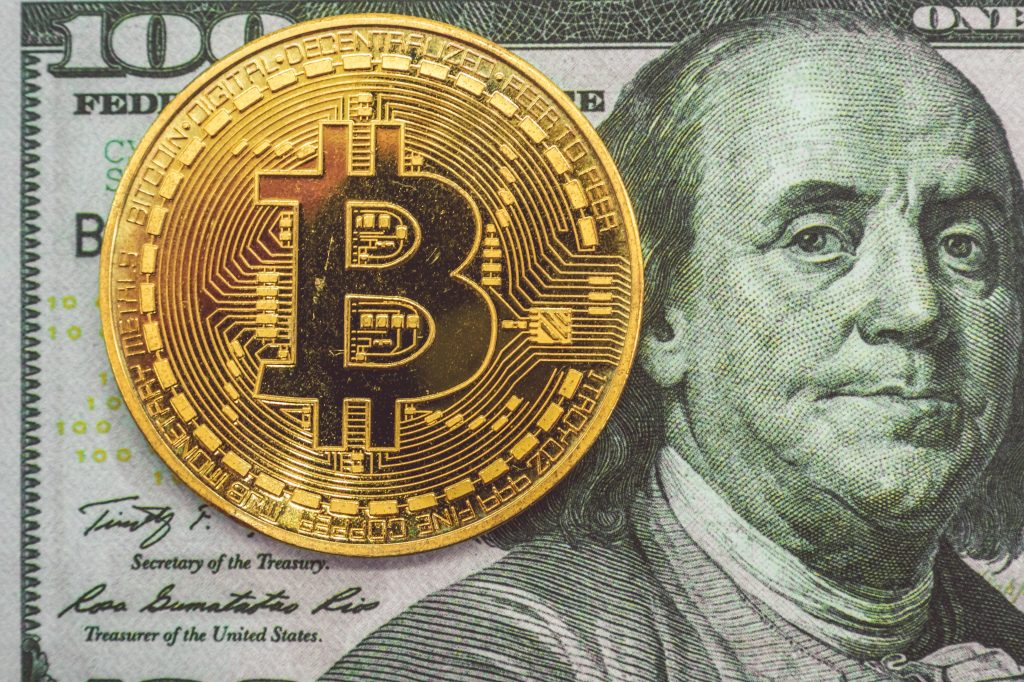It’s impossible that any single nation could acquire an international benefit because of popular BTC adoption by governments and banks. Bitcoin could constrain national banks to deal with their fiat monetary forms in a more capable way.

Governments have at last Sat up and considered crypto. For quite a long time they ridiculed, scrutinized, and surprisingly restricted cryptographic forms of money, however now they’re rushing to go into the crypto world, with various central banks intending to carry out their own advanced monetary standards in the coming months and years.
As for real, decentralized crypto, no administration or central bank would at present dare try to plans to purchasing up bitcoin (BTC) as a reserve resource. Be that as it may, if this occurs, what it may mean on the global and neighborhood levels?
According to a variety of analysts, it’s unlikely that any single country — including China — could gain a geopolitical advantage as a result of widespread bitcoin adoption by governments and central banks. Instead, the expansion of bitcoin could have a number of knock-on effects on domestic politics, putting pressure on governments to more responsibly manage their own fiat currencies, and possibly even motivating them to nationalize their cryptocurrency mining sectors.
A Theoretical Threat
If bitcoin does ever become a reserve asset, the most obvious hypothetical concern that arises is that China — which still hosts most of the Bitcoin blockchain’s hash power — somehow gains a considerable amount of political leverage over the rest of the world. In theory, it may be able to threaten to conduct a 51% attack that, say, reverses a payment (in BTC) made by a government to a nation or organization.
This is theoretically possible, but most analysts claim it’s highly unlikely.
“First, even though [mining] entities are located in China, they are different entities with different owners and probably different reasons for mining. They are also very large and have made a considerable capital investment in mining Bitcoin,” said Pete Earle, an economist with the American Institute for Economic Research.
Earle added that if China-based miners were convinced or cajoled into conducting a 51% attack, “they would immediately destroy much, if not all, of what they had invested in.”
He also noted that, even in a scenario where the Chinese government had nationalized or gained control of all mining facilities in the country, this still wouldn’t substantially increase the chances of an attack.
“If the Chinese government swept in, seized them all, and altered the consensus system […] that would likely trigger an utter collapse in the value, and thus price, of bitcoin. It’s an existential risk that must be considered by miners and Bitcoin holders alike.”
Other analysts largely agree with this appraisal. Also speaking to Cryptonews.com, Arcane Research’s Sofia Blikstad said it is unlikely that China could use mining to its geopolitical advantage.
“I don’t see a scenario where China can leverage mining. Miners tend to be more loyal to the network rather than the state; loyalty is guided by electricity prices and fees rather than political or geographic traits,” she said.
More practically, Lennix Lai — the director of financial markets at OKEx — suspects it wouldn’t even be possible for the Chinese state to pull off a 51% attack or anything similar for political purposes.
“Despite the fact that the majority of hash power comes from China, most of the mining field operators in the country are actually running cloud mining services — a type of proximity hosting that is ultimately contributed by end users instead of individuals or companies controlling the entire mining rigs. So the hash power in China is decentralized to an extent and it is practically impossible for any single party or even the government to seize control of any mining rig without alerting others,” he told Cryptonews.com.
This warning extends to any other government or state that may attempt to wield leverage over the Bitcoin blockchain. And with China’s dominance of hashpower declining (it dropped from 75% to 65% between September 2019 and April 2020), it’s also likely that, if and when bitcoin becomes a reserve asset, mining would be more dispersed and distributed by then.
“Even if this happens, most miners would take action against attackers within minutes to secure the network,” added Lai.
Risks & Benefits
While it seems unlikely that any single nation will gain an advantage from bitcoin becoming a reserve asset (unless it buys up bitcoin early and becomes extraordinarily rich somewhere down the line), there would potentially be a range of other effects.
“Bitcoin could become sovereign collateral to back legal tenders like gold if that is the case. Hence, the mining business would possibly be nationalized. Owning and transacting bitcoin might become rather restrictive for the general public,” said Lai.
For Sofia Blikstad, bitcoin becoming a reserve asset or currency could exacerbate wealth inequality, something which would have domestic political implications.
“Placing BTC in Fed [US Federal Reserve System] reserves could send a dollar sell signal across the world. As bitcoin continues to gain in dominance, the less we want to hold fiat, hurting those whose material well-being depends on it, potentially fueling social division and populism,” she said.
On the other hand, Blikstad also suggested that bitcoin’s widespread adoption could have ramifications for monetary policy, insofar as reduced relative demand for US dollars (or any other fiat currency) will force it to compete to survive.
In any case, having said this, analysts are really suspicious that bitcoin will turn into a hold asset/currency to the degree that each significant national bank has a critical part of it on their accounting reports.
